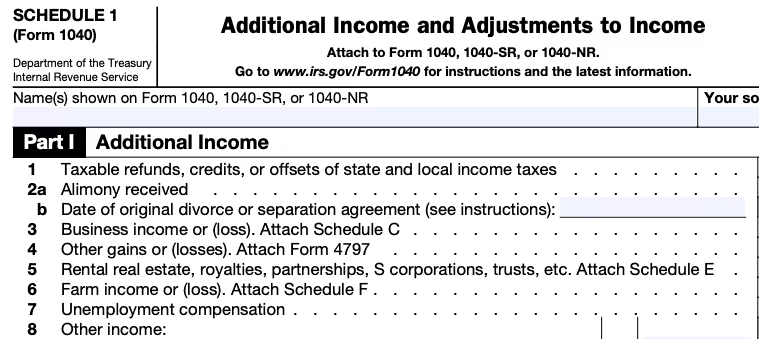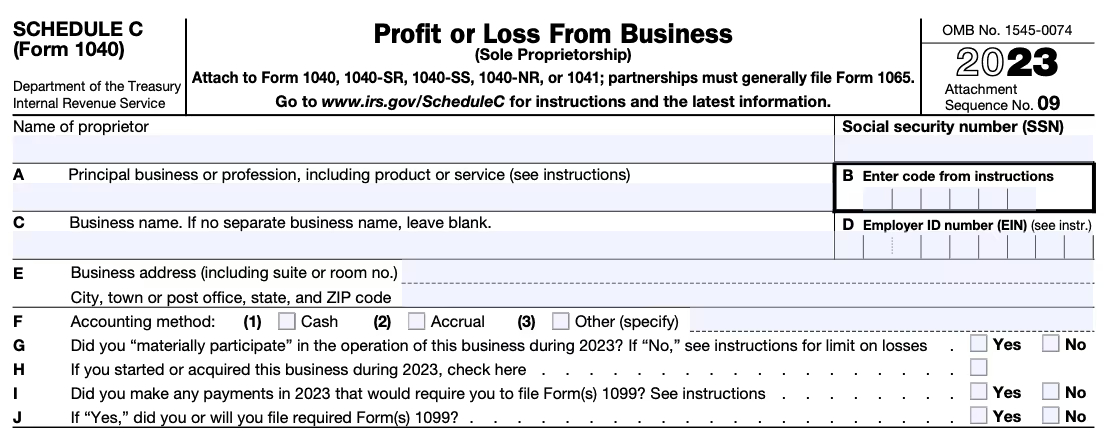.avif)
Calculate Your Crypto
Taxes in Minutes
In the USA if you are mining crypto then keep in mind that the IRS wants its share too!
Crypto mining taxes in the US can vary significantly because crypto mining is taxed as income, and the tax rates depend on your total income for the tax year.
In this guide, we'll talk about how crypto mining is taxed in the USA, how to report your mining rewards, ways to lower your crypto mining taxes, and more..
Key Points:
- When you receive crypto mining rewards, they're treated as income by the IRS (and in most other countries!). This means you'll owe Income Tax on these rewards.
- If you sell, trade, or spend your crypto mining rewards later and make a profit, you might also pay Capital Gains Tax.
- Different tax rules apply for hobby miners compared to those mining crypto as a business. Businesses might qualify for tax deductions.
What’s Crypto Mining you ask?
Crypto mining involves miners who validate crypto transactions on the blockchain. They do this by using computers to solve complex problems, competing to be chosen as the validator. If selected, they earn rewards by creating new units of a specific cryptocurrency.
Bitcoin introduced crypto mining using a Proof-of-Work (PoW) protocol. Miners are rewarded with new BTC units for verifying transactions on the Bitcoin blockchain.
Proof of Work (PoW)
Proof of Work (PoW) is a system where miners earn new cryptocurrency units by solving challenging math problems. This process verifies transactions on a specific blockchain network and shows that the miners have done their job.
Mining Rewards
Mining rewards are like compensations for miners who verify transactions on networks that use Proof of Work, such as Bitcoin.
Is crypto mining earned income?
Unfortunately, yes. Crypto mining can trigger two separate taxable events. Let's break them down.
1. Income Tax: When you receive rewards from mining, the IRS treats it as income. This means you'll owe Income Tax based on the fair market value of your mining rewards on the day you got them.
It's crucial to note that this fair market value also becomes your cost basis. Why does this matter? Well, if you decide to sell or use your mining rewards later on, you'll need to know your cost basis to figure out your gain or loss.
2. Capital Gains Tax on crypto mining: If you decide to sell, swap, or spend your mining rewards down the line, you might owe Capital Gains Tax.
To calculate your capital gain or loss, subtract the value of your mining rewards when you received them (cost basis), from the selling price or the fair value the day you disposed of them. If you made a profit, you'll pay tax on that. If you end up with a loss, you can use it to lower your tax bill.
Let's break it down with an example to make things clearer:
- On August 1st, 2023, Joshua successfully mined 1 bitcoin valued at $40,000.
- Joshua decides to sell his Bitcoin later for $42,000.
- As a result, Joshua faces $40,000 in ordinary income and $2,000 in capital gains.
What is the tax rate for mining cryptocurrency in USA?
The amount of tax you pay on crypto mining rewards varies based on how much you earn. When you receive mining rewards, you may owe Income Tax, which can be as high as 37%. Additionally, if you sell or dispose of your mining rewards and make a profit, you might owe Capital Gains Tax, which can be up to 20%. To find out more about crypto tax rates, check out our guide. (Crypto Tax Rates Guide to be linked here)
Is there a 30% tax on crypto mining?
Recently, the Treasury Department suggested a possible 30% excise tax on crypto mining businesses. But as of now, it's uncertain whether this proposal will go through Congress and become a law.
Doing crypto mining as a hobby compared to running it as a business
If you’re self employed and treat your mining as a business, you might have to pay Self-Employment Tax. This tax covers contributions to social security and Medicare, depending on how you legally structure your mining business.
Lots of crypto miners in the US decide to turn their mining into a business by incorporating it or operate as a sole proprietorship. This way, they can deduct business expenses related to mining.
Tax deductions for crypto mining
Once you've established your mining operation as a business, you can deduct certain expenses from your taxes. Many miners are aware that running a mining operation can be expensive. However, treating it as a business allows you to offset some of these expenses from your tax bill.
Here are some of the business expenses related to mining that you can deduct:
- The cost of equipment, such as a mining rig.
- Expenses for repairing equipment.
- Electricity costs.
- If applicable, expenses for office space or a home office deduction.
It's always a good idea to seek advice from a qualified accountant to determine the best approach for managing your mining activities from a tax perspective.
How to Report Crypto Mining Income on Taxes in USA
To report your crypto mining income on taxes, you'll need to do it when you file your annual tax return by April 15th each year. How you report your mining income depends on whether you're mining as a hobby or as a business.
If you're a hobby miner, you'll report your mining income as other income on Form Schedule 1 (1040), line 8. Any capital gains from selling, swapping, or spending mined coins will go on Form Schedule D (1040) and Form 8949.

For those who are self-employed or running a mining business, you'll report your mining income on Form Schedule C (1040).

If you need more guidance on crypto taxes, check out our USA Crypto Tax Guide.
Am I Required to Pay Quarterly Taxes for Mining Crypto?
Whether or not you have to pay quarterly taxes on your crypto mining income depends on your situation. Here's how it works:
The IRS says you should pay quarterly taxes if:
- You expect to owe over $1,000 in taxes after subtracting tax credits and withholding.
- Your withholding and refundable credits won't cover at least 90% of this year's tax bill or 100% of next year's.
If both of these apply to you, then yes, you'll need to pay quarterly taxes. It means you'll have to keep a close eye on your tax situation throughout the year to make sure you're meeting your obligations.
What if I Don't Report My Crypto Mining Income on Taxes?
Not reporting your crypto mining income or any profits from selling mining rewards is considered tax evasion. This can lead to serious consequences like penalties, fines, and even the possibility of going to prison. The IRS is tracking down on crypto tax evasion and increasing audits. So, it's not worth taking the risk.
How Can I Avoid My Taxes on Crypto Mining?
You can't avoid taxes on crypto mining without facing penalties. However, there are legal steps you can take to reduce your crypto mining tax bill:
- Consider setting up a crypto business for your mining activities. This allows you to deduct mining expenses from your taxes.
- Take advantage of tax loss harvesting opportunities to reduce capital gains throughout the year.
- Use crypto tax software to keep track of your tax liability and find the most efficient way to minimize taxes by choosing the right cost basis method.
Cryptocurrency Mining Tax Software
Using crypto mining tax software such as Kryptos can make managing your tax obligations from mining a breeze. Kryptos allows you to connect popular Proof-of-Work blockchains like Bitcoin, Litecoin, Dash, Zcash, and more to automatically import all your mining transactions.
Once your mining transactions are imported, Kryptos includes them in your tax summary automatically. If you're in a location where mining is considered income and subject to Income Tax, you can toggle the "treat mining as income" option in the settings. When you set up your Kryptos account, these settings will be adjusted based on the recommended tax treatment for your country.
If your mining transactions aren't tagged automatically, you can manually label deposits as "mining" in Kryptos.
After that, all you need to do is download the tax report and file it with your tax office or chosen tax app. Kryptos supports various tax reports for crypto investors worldwide.
Additionally, Kryptos offers support for various cost basis methods, including FIFO, LIFO, and HIFO. You can customize these settings to see how they impact your crypto taxes.
Beyond saving you from hours of spreadsheet work and calculations, Kryptos also cuts down the time spent on form-filling. For US investors, Kryptos generates pre-filled forms ready for submission to the IRS or your tax portal. These include - IRS Form 8949 & Schedule D, TurboTax Report, Tax Act Report, Complete Tax Report.
Make your crypto tax experience more efficient with Kryptos.
Practical Tips to Stay Compliant with USA Crypto Mining Taxes
- Keep accurate records: Always track the date, fair market value, and quantity of your mining rewards. The IRS requires precise reporting, and missing data could lead to penalties.
- Use dedicated wallets for mining income: Separating your mining rewards from personal or investment wallets makes reporting cleaner and reduces audit risks.
- Stay updated on IRS guidance: The IRS has issued multiple notices, such as Notice 2014-21, clarifying how virtual currencies are taxed. Keep an eye on new updates, especially since proposals like the 30% excise tax on mining are still under discussion in Congress.
- Consider quarterly estimated payments: If your mining rewards generate significant taxable income, paying quarterly avoids underpayment penalties. Use Form 1040-ES for calculations.
Making Tax Management Easier
- Automated record keeping: Instead of manually logging every mining payout, use specialized tax tools to sync your blockchain and wallet transactions automatically.
- Customizable cost basis methods: Applying FIFO, LIFO, or HIFO can significantly impact how much tax you owe—choosing the most suitable method matters.
- IRS-ready forms: Pre-filled reports (e.g., Form 8949 and Schedule D) save hours of compliance work and lower the risk of mistakes.
- Audit preparedness: Having clear gain/loss summaries and categorized income reports will keep you safe if the IRS comes knocking.
- Business deductions: If you structure your mining activity as a business, you can deduct equipment, repairs, and electricity bills from your taxable income.
Additional Questions
1. Am I obligated to pay quarterly taxes for mining crypto?
Whether you need to pay quarterly taxes depends on your tax situation. If you expect to owe over $1,000 in taxes after accounting for credits and withholding, or if your withholding won't cover a certain percentage of your tax bill, you may need to pay quarterly taxes. Be sure to monitor your tax situation closely to fulfill your obligations.
All content on Kryptos serves general informational purposes only. It's not intended to replace any professional advice from licensed accountants, attorneys, or certified financial and tax professionals. The information is completed to the best of our knowledge and we at Kryptos do not claim either correctness or accuracy of the same. Before taking any tax position / stance, you should always consider seeking independent legal, financial, taxation or other advice from the professionals. Kryptos is not liable for any loss caused from the use of, or by placing reliance on, the information on this website. Kryptos disclaims any responsibility for the accuracy or adequacy of any positions taken by you in your tax returns. Thank you for being part of our community, and we're excited to continue guiding you on your crypto journey!
| Step | Form | Purpose | Action |
|---|---|---|---|
| 1 | 1099-DA | Reports digital asset sales or exchanges | Use to fill out Form 8949. |
| 2 | Form 1099-MISC | Reports miscellaneous crypto income | Use to fill out Schedule 1 or C. |
| 3 | Form 8949 | Details individual transactions | List each transaction here. |
| 4 | Schedule D | Summarizes capital gains/losses | Transfer totals from Form 8949. |
| 5 | Schedule 1 | Reports miscellaneous income | Include miscellaneous income (if not self-employment). |
| 6 | Schedule C | Reports self-employment income | Include self-employment income and expenses. |
| 7 | Form W-2 | Reports wages (if paid in Bitcoin) | Include wages in total income. |
| 8 | Form 1040 | Primary tax return | Summarize all income, deductions, and tax owed. |
| Date | Event/Requirement |
|---|---|
| January 1, 2025 | Brokers begin tracking and reporting digital asset transactions. |
| February 2026 | Brokers issue Form 1099-DA for the 2025 tax year to taxpayers. |
| April 15, 2026 | Deadline for taxpayers to file their 2025 tax returns with IRS data. |
| Timeline Event | Description |
|---|---|
| Before January 1, 2025 | Taxpayers must identify wallets and accounts containing digital assets and document unused basis. |
| January 1, 2025 | Snapshot date for confirming remaining digital assets in wallets and accounts. |
| March 2025 | Brokers begin issuing Form 1099-DA, reflecting a wallet-specific basis. |
| Before Filing 2025 Tax Returns | Taxpayers must finalize their Safe Harbor Allocation to ensure compliance and avoid penalties. |
| Feature | Use Case Scenario | Technical Details |
|---|---|---|
| Automated Monitoring of Transactions | Alice uses staking on Ethereum 2.0 and yield farming on Uniswap. Kryptos automates tracking of her staking rewards and LP tokens across platforms. | Integrates with Ethereum and Uniswap APIs for real-time tracking and monitoring of transactions. |
| Comprehensive Data Collection | Bob switches between liquidity pools and staking protocols. Kryptos aggregates all transactions, including historical data. | Pulls and consolidates data from multiple sources and supports historical data imports. |
| Advanced Tax Categorization | Carol earns from staking Polkadot and yield farming on Aave. Kryptos categorizes her rewards as ordinary income and investment income. | Uses jurisdiction-specific rules to categorize rewards and guarantee compliance with local tax regulations. |
| Dynamic FMV Calculation | Dave redeems LP tokens for Ethereum and stablecoins. Kryptos calculates the fair market value (FMV) at redemption and during sales. | Updates FMV based on market data and accurately calculates capital gains for transactions. |
| Handling Complex DeFi Transactions | Eve engages in multi-step DeFi transactions. Kryptos tracks value changes and tax implications throughout these processes. | Manages multi-step transactions, including swaps and staking, for comprehensive tax reporting. |
| Real-Time Alerts and Updates | Frank receives alerts on contemporary tax regulations affecting DeFi. Kryptos keeps him updated on relevant changes in tax laws. | Observe regulatory updates and provide real-time alerts about changes in tax regulations. |
| Seamless Tax Reporting Integration | Grace files taxes using TurboTax. Kryptos integrates with TurboTax to import staking and yield farming data easily. | Direct integration with tax software like TurboTax for smooth data import and multi-jurisdictional reporting. |
| Investor Type | Impact of Crypto Tax Updates 2025 |
|---|---|
| Retail Investors | Standardized crypto reporting regulations make tax filing easier, but increased IRS visibility raises the risk of audits. |
| Traders & HFT Users | To ensure crypto tax compliance, the IRS is increasing its scrutiny and requiring precise cost-basis calculations across several exchanges. |
| Defi & Staking Participants | The regulations for reporting crypto transactions for staking rewards, lending, and governance tokens are unclear, and there is a lack of standardization for decentralized platforms. |
| NFT Creators & Buyers | Confusion over crypto capital gains tax in 2025, including the taxation of NFT flips, royalties, and transactions across several blockchains. |
| Crypto Payments & Businesses | Merchants who take Bitcoin, USDC, and other digital assets must track crypto capital gains for each transaction, which increases crypto tax compliance requirements. |
| Event | Consequences | Penalties |
|---|---|---|
| Reporting Failure | The tax authorities can mark uncontrolled revenues and further investigate. | Penalty fines, interest on unpaid taxes and potential fraud fees if they are deliberately occurring. |
| Misreporting CGT | Misreporting CGT Error reporting profits or losses can trigger the IRS audit. | 20% fine on under -ported zodiac signs, as well as tax and interest. |
| Using decentralized exchanges (DEXs) or mixers without records | The IRS can track anonymous transactions and demand documentation. | Possible tax evasion fee and significant fine. |
| Disregarding Bitcoin mining tax liabilities | Mining reward is considered taxable income, and failure of the report can be regarded as tax fraud. | Further tax obligations, punishment and potential legal steps. |
| Foreign crypto holdings: Non-disclosure | Foreign-accepted crypto FATCA may be subject to reporting rules. | Heavy fines (up to $ 10,000 per fracture) or prosecution for intentional non-transport. |
File Your Crypto Tax in Minutes











